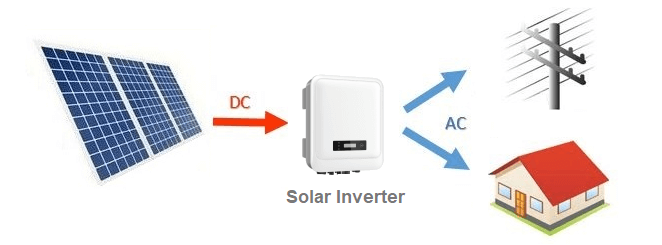
태양에너지가 집 전체에 전력을 공급할 만큼 효율적인지 여부에 대한 질문은 태양광 발전 시스템 설치를 고려할 때 많은 사람들이 궁금해하는 문제입니다.. 대답은 단순한 예 또는 아니오가 아닙니다., 고려해야 할 여러 요소가 있기 때문에.
첫 번째, 태양광 패널이 어떻게 작동하는지 이해하는 것이 중요합니다. 태양광 패널은 태양광 발전으로 구성됩니다. (PV) 세포, 햇빛을 직류로 변환하는 장치 (DC) 전기. 이 DC 전기는 교류로 변환됩니다. (교류) 태양광 인버터로 전기를 공급하다, 가정과 기업의 가전제품 및 장치에 전원을 공급하는 데 사용할 수 있습니다..
태양광 발전 시스템이 생산할 수 있는 전기량은 여러 요인에 따라 달라집니다., 태양광 패널 어레이의 크기 포함, 패널의 방향과 각도, 패널이 받는 햇빛의 양, 태양광 패널 자체의 효율성. 추가적으로, 집에서 사용하는 전기의 양은 태양 에너지가 집 전체에 전력을 공급할 수 있는지 여부를 결정하는 역할도 합니다..
태양 에너지가 집 전체에 전력을 공급할 만큼 효율적인지 여부를 확인하려면, 가정의 에너지 수요를 고려하는 것이 중요합니다. 여기에는 입주자 수가 포함됩니다., 집의 크기, 그리고 정기적으로 사용되는 가전제품과 기기들. 가정의 에너지 필요량은 월별 전기 요금을 보고 월 평균 전기 사용량을 확인하여 계산할 수 있습니다..
가정의 에너지 수요가 결정되면, 태양광 패널 어레이의 크기를 계산할 수 있습니다.. 일반적인 경험 법칙은 다음과 같습니다. 1 kW 태양광 패널 어레이는 사이에서 생성할 수 있습니다. 4-5 하루 전기 kWh. 그러므로, ㅏ 5 kW 태양광 패널 어레이는 주변에서 생성될 수 있습니다. 20-25 하루 전기 kWh. 이 정도의 전력량은 중소형 주택에 전력을 공급하기에 충분합니다., 집의 에너지 수요에 따라.
태양광 패널의 방향과 각도를 고려하는 것도 중요합니다.. 이상적으로는, 태양광 패널은 남쪽을 향하고 설치 장소의 위도와 동일한 각도로 기울어져야 합니다.. 이를 통해 태양광 패널은 하루 종일 가장 많은 햇빛을 포착할 수 있습니다.. 하지만, 태양광 패널이 남쪽을 향하지 않거나 최적의 각도가 아니더라도, 그들은 여전히 전기를 생산할 수 있다.
태양광 패널의 방향과 각도 외에도, 태양광 패널 자체의 효율성을 고려하는 것이 중요합니다. 태양광 패널의 효율은 햇빛이 얼마나 많은 양의 전기로 변환되는지를 측정한 것입니다.. 효율성이 높을수록, 태양광 패널이 더 많은 전기를 생산할 수 있을수록. 고효율 태양광 패널은 저효율 패널보다 비쌀 수 있습니다., 그러나 그들은 또한 더 많은 전기를 생산할 수 있고 지붕에 더 적은 공간을 필요로 합니다..
고려해야 할 또 다른 요소는 가정에서 에너지 효율적인 가전제품과 장치를 사용하는 것입니다.. 에너지 효율적인 가전제품 및 장치는 전기를 덜 사용합니다., 이는 가정의 전반적인 에너지 요구를 줄이는 데 도움이 될 수 있습니다.. 추가적으로, 에너지 효율적인 기기 및 장치를 태양광 발전 시스템과 결합하여 그리드에서 필요한 전기량을 더욱 줄일 수 있습니다..
결론적으로, 태양 에너지가 집 전체에 전력을 공급할 만큼 효율적인지 여부는 여러 요인에 따라 달라집니다., 가정의 에너지 요구 사항을 포함하여, 태양광 패널 어레이의 크기, 태양전지판의 방향과 각도, 태양광 패널의 효율성, 에너지 효율적인 가전제품 및 장치의 사용. 적절한 계획과 설치를 통해, 태양광 발전 시스템은 가정과 기업에 신뢰할 수 있는 청정 에너지원을 제공할 수 있습니다..
